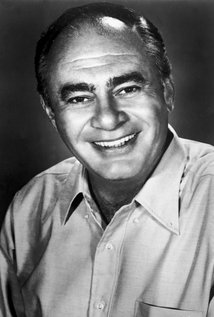
Martin Balsam
Birthday:
4 November 1919, The Bronx, New York City, New York, USA
Birth Name:
Martin Henry Balsam
Height:
170 cm
Martin Henry Balsam was born on November 4, 1919 in the Bronx, New York City, to Lillian (Weinstein) and Albert Balsam, a manufacturer of women's sportswear. He was the first-born child. His father was a Russian Jewish immigrant, and his mother was born in New York, to Russian Jewish parents. Martin caught the acting bug in high school where h...
Show more »
Martin Henry Balsam was born on November 4, 1919 in the Bronx, New York City, to Lillian (Weinstein) and Albert Balsam, a manufacturer of women's sportswear. He was the first-born child. His father was a Russian Jewish immigrant, and his mother was born in New York, to Russian Jewish parents. Martin caught the acting bug in high school where he participated in the drama club. After high school, he continued his interest in acting by attending Manhattan's progressive New School. When World War II broke out, Martin was called to service in his early twenties. After the war, he was lucky to secure a position as an usher at Radio City Music Hall in New York City. By 1947, he was honing his craft at the Actors Studio, run at that time by Elia Kazan and Lee Strasberg. His time at the Actors Studio in New York City allowed him training in the famous Stanislavsky method. Despite his excellent training, he had to prove himself, just like any up and coming young actor. He began on Broadway in the late 1940s. But, it was not until 1951 that he experienced real success. That play was Tennessee Williams' "The Rose Tattoo". After his Broadway success, he had a few minor television roles before his big break arrived when he joined the cast of On the Waterfront (1954). In the 1950s, Martin had many television roles. He had recurring roles on some of the most popular television series of that time, including The United States Steel Hour (1953), The Philco Television Playhouse (1948), Goodyear Television Playhouse (1951) and Studio One (1948). In 1957, he was able to prove himself on the big-screen once again, with a prominent role in 12 Angry Men (1957), directed by Sidney Lumet and starring Henry Fonda. All of Martin's television work in the 1950s did not go to waste. While starring on an episode of Alfred Hitchcock Presents (1955), Hitchcock was so impressed by his work, that he offered him a key supporting role of Detective Milton Arbogast in Psycho (1960). His work with Hitchcock opened him up to a world of other acting opportunities. Many strong movie roles came his way in the 1960s, including parts in Breakfast at Tiffany's (1961), Cape Fear (1962) and The Carpetbaggers (1964). One of the proudest moments in his life was when he received an Academy Award for Best Supporting Actor for A Thousand Clowns (1965). It was soon after that he began accepting roles in European movies. He soon developed a love for Italy, and lived there most of his remaining years. He acted in over a dozen Italian movies and spent his later life traveling between Hollywood and Europe for his many roles. After a career that spanned more than fifty years, Martin Balsam died of natural causes in his beloved Italy at age 76. He passed away of a heart attack at a hotel in Rome called Residenza di Repetta. He was survived by his third wife Irene Miller and three children, Adam, Zoe and Talia. Show less «
I'll tell you, I still don't feel whatever change you're supposed to feel when your name goes up above the title. I think that's because thi...Show more »
I'll tell you, I still don't feel whatever change you're supposed to feel when your name goes up above the title. I think that's because this star thing has never been the first consideration with me. Never. The work has always come first. Show less «
I think the average guy has always identified with me.
I think the average guy has always identified with me.
The supporting role is always potentially the most interesting in a film.
The supporting role is always potentially the most interesting in a film.
[on playing Mr. Green in The Taking of Pelham One Two Three (1974)] I have always wanted to get away from playing Mr. Nice Guy. I loathe nic...Show more »
[on playing Mr. Green in The Taking of Pelham One Two Three (1974)] I have always wanted to get away from playing Mr. Nice Guy. I loathe nice guys because I am one, but let's face it, there's a lot of nastiness in me. Show less «

Dr. Rudy Wells

Wolfgang Bouc

Howard Simons

Juror 1

Admiral Husband E. Kimmel

Col. Cathcart

Det. Milton Arbogast

Albert Sully

Edgar Carmody

Edgar Carmody
















